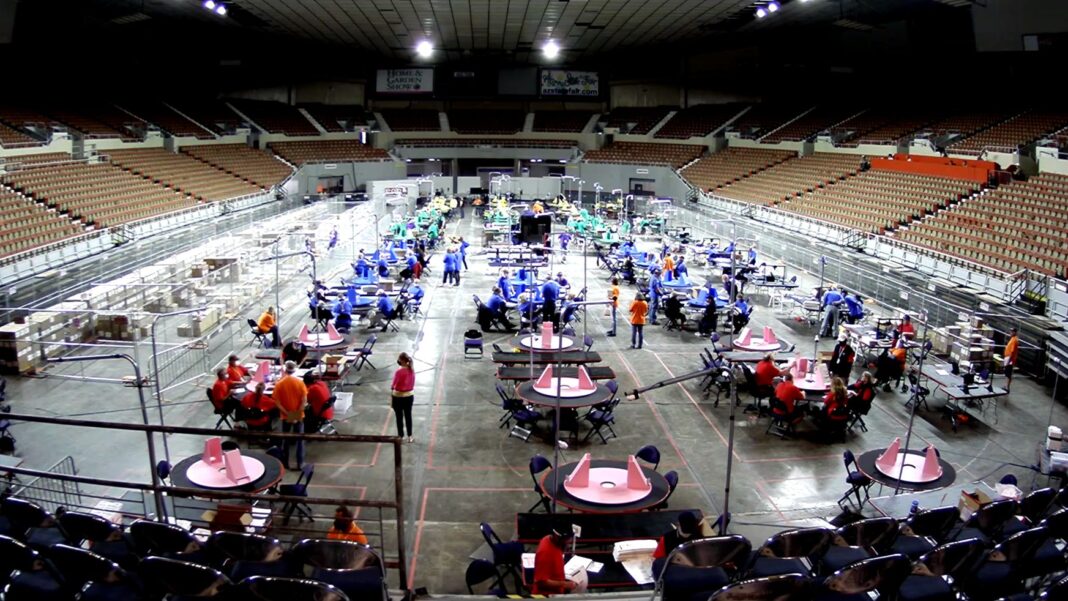A laboratory at the University of Florida that recently analyzed a small sample of face masks, detected the presence of 11 dangerous pathogens that included bacteria’s that cause diphtheria, pneumonia, and meningitis.
Gainesville parents in Florida concerned about the harm caused to their children wearing face masks all day at school in 90 °F weather sent out six masks—five that were worn by children ages 6 to 11 for five to eight hours at school, and one worn by an adult—to be analyzed for contaminants at the University of Florida’s Mass Spectrometry Research and Education Center.
Of the six masks, three were surgical, two cotton, and a poly gaiter. Masks that have not been worn and a t-shirt worn at school acted as the control samples.
Five of the masks were found to be contaminated with parasites, fungi, and bacteria, according to Rational Ground. Only one mask was found to contain a virus that can cause a fatal systemic disease in cattle and deer. Other less harmful pathogens that can cause ulcers, acne, and strep throat were also detected.
None of the controls were contaminated with pathogens, while “samples from the front top and bottom of the t-shirt found proteins that are commonly found in skin and hair, along with some commonly found in soil.”
Amanda Donoho, a mother of three elementary school children, teamed up with other parents to send the masks to the lab because her sons broke out in rashes from prolonged mask-wearing.
“Our kids have been in masks all day, seven hours a day in school,” Donoho told Fox & Friends on June 17. “The only break that they get is to eat or drink.”
Donoho said that while students do not have to wear a mask outside at school since April 2021, masks were still required when they were within six to eight feet of each other. Masks must also be worn on school buses.
Further research is needed to better understand what is being put on children’s faces, says Donoho.
BY MEILING LEE





